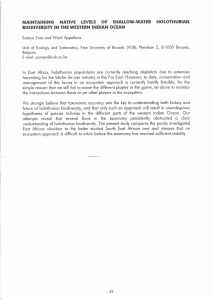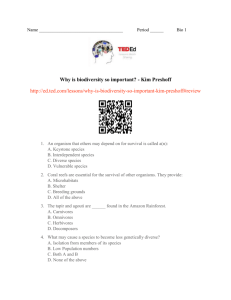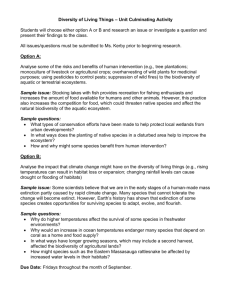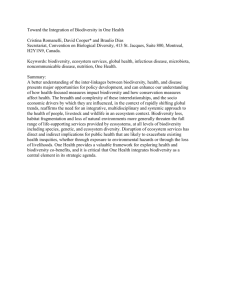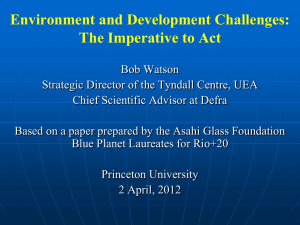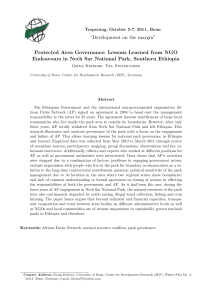Organizing a public ecosystem service economy for sustaining biodiversity
advertisement
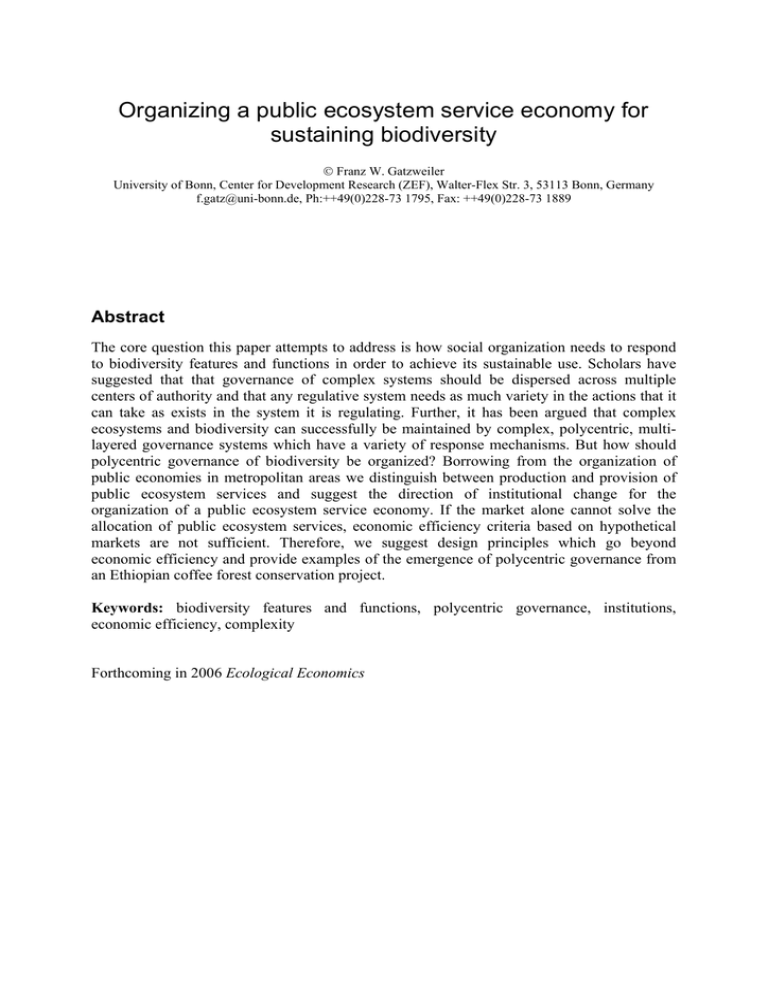
Organizing a public ecosystem service economy for sustaining biodiversity © Franz W. Gatzweiler University of Bonn, Center for Development Research (ZEF), Walter-Flex Str. 3, 53113 Bonn, Germany f.gatz@uni-bonn.de, Ph:++49(0)228-73 1795, Fax: ++49(0)228-73 1889 Abstract The core question this paper attempts to address is how social organization needs to respond to biodiversity features and functions in order to achieve its sustainable use. Scholars have suggested that that governance of complex systems should be dispersed across multiple centers of authority and that any regulative system needs as much variety in the actions that it can take as exists in the system it is regulating. Further, it has been argued that complex ecosystems and biodiversity can successfully be maintained by complex, polycentric, multilayered governance systems which have a variety of response mechanisms. But how should polycentric governance of biodiversity be organized? Borrowing from the organization of public economies in metropolitan areas we distinguish between production and provision of public ecosystem services and suggest the direction of institutional change for the organization of a public ecosystem service economy. If the market alone cannot solve the allocation of public ecosystem services, economic efficiency criteria based on hypothetical markets are not sufficient. Therefore, we suggest design principles which go beyond economic efficiency and provide examples of the emergence of polycentric governance from an Ethiopian coffee forest conservation project. Keywords: biodiversity features and functions, polycentric governance, institutions, economic efficiency, complexity Forthcoming in 2006 Ecological Economics

